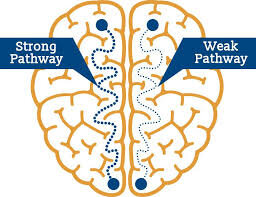Dr. Chris Wolf Answers: What are Early Warning Signs of Stress?
It is likely that you have heard the expression that “stress is a fact of life.” While that is the case, it is important to identify the early warning signs of excessive stress so that you can cope more effectively. As Benjamin Franklin said, “An ounce of prevention is worth a pound of cure.”
Prevent Stress Build-up
Stress can be divided into categories. By doing so we can more easily recognize and understand stress reactions. Categories can be divided into Emotional, Behavioral and Physical indicators of stress.
There is no set number of the symptoms that indicate difficulty in coping. More often we look to see the extent to which the reaction is a change from the normal level of functioning. Also, the combination of symptoms can determine the severity of the stress problem.
Indicators may be isolated reactions or combinations among the three categories presented below. Importantly, it is how long the symptoms have been present and how long they last that can make a difference. Also, how often the symptoms happen along with the strength with which they are present that will often reflect the severity of the difficulty in coping.
Difficulty in Coping Reflected by the Following Three Categories. Check off the one that affect you.:
Physical Indicators
A. __Body Indicators include headache, sleep problems, appetite changes, weigh gain or loss, indigestion, nausea, constipation or diarrhea, problems with sex.
B. __Suppressed immune system leading to more illness.
C. __Self-medication such as overuse of analgesics or sleep medicines.
D. __Fatigue or physical exhaustion often related to poor sleep quality.
E. __Preoccupation with illness dwelling on small aches and pains.
Emotional Indicators
A. __Apathy including loss of interest in pleasurable activities, low interest, sadness.
B. __Irritability including being overly sensitive, defensive, getting into arguments, feeling hostile, and sometimes arrogant.
C. __Anxiety such as restlessness, feeling irritable, insecure feelings or a sense of worthlessness.
D. __Denial that a problem exists.
E. __Exaggerating situation out of proportion.
F. __Being suspicious of the motives of others.
G. __Mental fatigue such as being preoccupied, concentration problems or being inflexible.
Behavioral Indicators
A. __Withdrawal which may include social isolation, not accepting more responsibility, neglecting duties.
B. __Acting Out by using alcohol abuse, excessive spending, promiscuity or gambling.
C. __Other Infractions such as being late to work, poor hygiene or appearance, being accident prone.
D. __Legal Violations like shoplifting, traffic tickets, family abuse, large debt, verbal or physical abuse.
What Can Help?
Relaxed breathing really does help if you employ it regularly. I often suggest that my clients integrate relaxed breathing into their day so that they are periodically reducing their level of stress. Here are some simple instructions:
1. Sit in a comfortable position if possible, with all parts of your body supported so there is no need to tense any muscles.
2. Take three (3) cleansing breaths.
3. Place one hand on your chest and the other on your stomach.
4. Breathe so that only your stomach rises and falls.
a. Notice as you inhale, your chest is remaining relatively still while your stomach rises. You might imagine in your mind’s eye that you are breathing through your navel or “belly button.”
b. When breathing out, allow your stomach to fall in and the air to fully escape.
5. Take some deep relaxing breathes, concentrating on only moving your stomach.
6. Now, return to regular breathing, continuing to breath so that only our stomach moves. Focus on an easy, but regular breathing pater.
Now understand that when you try this at fist it may seem a little awkward. This is completely normal. With persistence, it will become very natural for you. Remember, you are never hungry for air.
BREATHE NOW
Here is a CALM Reminder
You can use the acronym CALM to help you develop the habit of integrating calmness into your daily routine. Remember, habit develop as a result of repetition and practice. If you practice CALM it will become second nature and enhance your health and wellness. Consider using this method six or more times a day for several minutes. In this way you will begin to integrate calmness into your daily life.
Chest: Breathing slower and deeper
Arms: Let the shoulders drop
Legs: Loose and flexible
Mouth: Let the jaw drop; imagine in your minds eye you are drooling.
What About Your Thoughts?
· Are you using absolute words that suggest unrealistic standards such as “must, have to, should, need?”
· Watch your self-talk for labeling and predictions that are extreme. These include words like “always, totally, everyone, never.”
· Beware of catastrophic words like “terrible, horrible, disaster, worse ever, awful.”
· Labeling others can cause substantial stress. Watch out for your internal dialog like “stupid, bully, creep, jerk.”
YOU CAN CHANGE TOXIC THOUGHTS
Double Check the Accuracy of Your Thinking
· Are you using extreme black or white thinking.?
· Are you demanding something happen of which you do not have control?
· Are you being fact based or opinion based in your thinking?
· Are you upsetting yourself unnecessarily? Will it matter net month?
· Think outside the box. What would you tell your best friend?
· What are my options in this situation? Pick a positive option that meets your longer-term goals.
In summary, there is much you can do to manage your stress more effectively. First, be aware of the emotional, behavioral and physical aspects of stress. Think about how you can have greater life balance. Consider body methods like relaxation, calm breathing, meditation, etc. Finally consider the way you have been thinking habitually. Work on becoming more aware of your internal dialog.
LEARN MORE ABOUT STRESS AND ANXIETY TREATMENT IN JACKSONVILLE HERE
OR
LEARN MORE ABOUT HEALTHY CHANGE IN JACKSONVILLE HERE
If you would like some professional assistance with the above, reach out for a FREE no obligation 20-minute strategy session. Follow link below.
Change your thoughts
Create positive feelings




